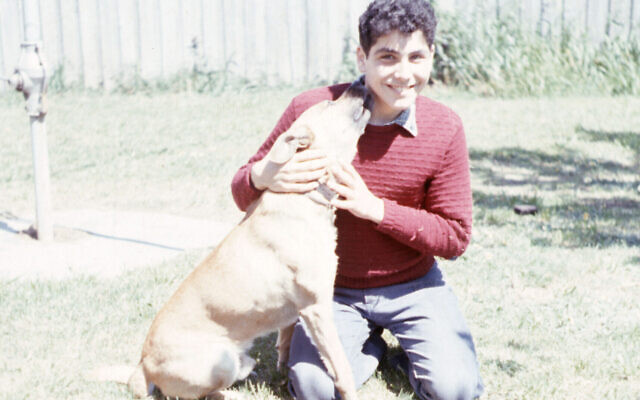Anti-Jewish bullying then and now
'Knowing I had told on my classmates, yet without any sign of help from teachers, I was in a twilight zone of fear'.
THE horrific incidents of Jewish children being bullied in public schools, reported so comprehensively in The AJN, triggers vivid memories of my own school days in the 1960s, as a child and teen in schools where, to the best of my knowledge, I was the only Jewish pupil.
In primary school in Clayton, I recall a teacher’s friendly but intrusive curiosity about the rye-bread sandwiches I brought for lunch, when most lunches were white bread. And I felt extremely awkward when a well-meaning but lead-footed teacher pointed me out to our class as “a child of Israel”. He then explained some tenets of Jewish tradition to my befuddled grade 5 schoolmates, who later quizzed me on the bus. I fielded their flippant questions with my slender knowledge from Sunday school.
But it was in high school – in the next suburb – that matters got worse. Incidentally, that school made headlines the year before I started, with an unexplained but well documented “UFO” sighting by numerous teachers and students, most likely an overflight from Moorabbin Airport. But if there had been an alien at that school, it would have been a 12-year-old Jewish boy.
Initially I was targeted like any non-Anglo. I was called a “wog”, a “choc”, a “dago”. But the first time being Jewish came up was the day after Yom Kippur, on which I’d been absent. A girl whose family was from eastern Europe, pronounced, “I know where you were yesterday, why you weren’t at school.” Her words were inoffensive in themselves but her tone and her stare were confrontational.
Within days, her younger sister, in my class, began mumbling insults about Jews. It spread like wildfire, and all the tedious jokes about Jews and misers were spat out at me. But the most chilling words came from a boy whose family had recently migrated from Germany. He said to me with a swagger, “If my people had won the war, you know what would have happened to you!” I was stunned, then nodded my head, trying to make light of his remark. But every time I rerun this memory, to this day, I regret my response had not been more forceful.
The bullying got worse. Over a short period, I was stabbed with ballpoint pens, drawing blood, and on the way home from school, I was pushed into a roadside construction ditch. I told my parents, and my father contacted the principal. But the stony silence that ensued was terrifying. Knowing I had “told” on my classmates, yet without any sign of help from teachers, I was in a twilight zone of fear.
Finally, a response. Along with the boys who had perpetrated a particular act of bullying me, I was ushered into the playground by a senior teacher and we were bizarrely told to stomp in a puddle. Spattered as we were, the teacher then delivered a little sermon – that throwing mud spatters everyone – accuser and accused. I was stunned.
In my final year at the school, a student teacher asked me to remain after class. She told me my teacher had remarked to her he deliberately never called on me in class, although my hand was often up, because he “wanted to see the little Jewish boy squirm”. I visited this courageous woman after hours with my father, and heard her plans to lodge a complaint.
That final year at the school, I was bashed very badly one afternoon, and it was decided I should do home schooling for the rest of the year. One of the bullies happened also to be my next-door neighbour, and our home was subjected to anonymous phone calls and the front of our house was defaced with graffiti. It was deeply shocking for all of us, particularly my mother, father and grandmother, who had escaped the Holocaust.
My parents had by then decided to enrol me at Melbourne High School, which at that time was zoned, and required us to move house. The following year, we moved to Carnegie, and I began attending the final two years of high school where a third of the students were Jewish, religious instruction classes were taken by the late Rabbis Ronald Lubofsky and Yitzchok Dovid Groner, and it was, to say the least, a sea change. And I never did find out what measures, if any, were taken about the report that my teacher had been antisemitic towards me.
I have often relived these painful memories, even wrote about them in a novel, View From A Sandcastle, whose title spoke of vulnerability.
I’m encouraged that nowadays we have a complaints process. Today’s parents, further removed from the Holocaust years, are more confident about living in Australia and about emphatically drawing attention to anti-Jewish bullying. We have a number of communal bodies standing up to antisemitism, as well as governments and oppositions that more or less listen. That’s heartening for me.
Peter Kohn is senior journalist at The AJN.


comments